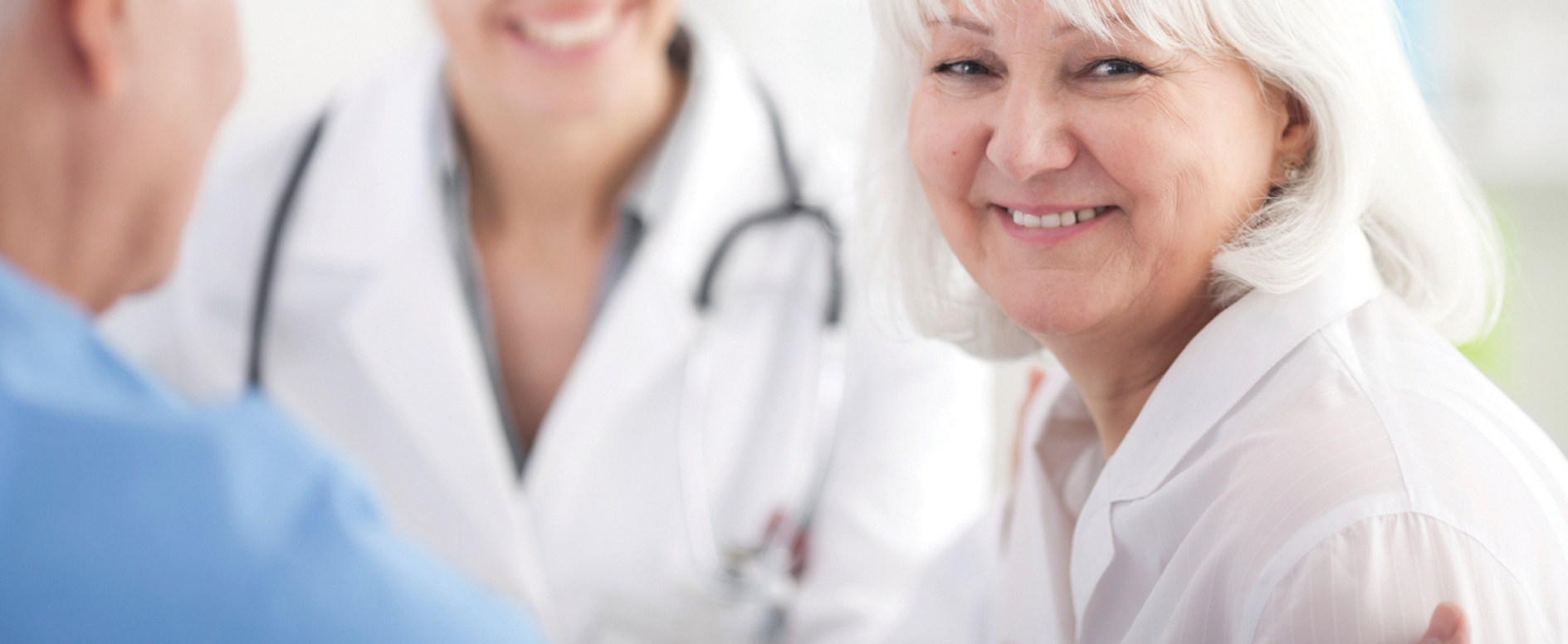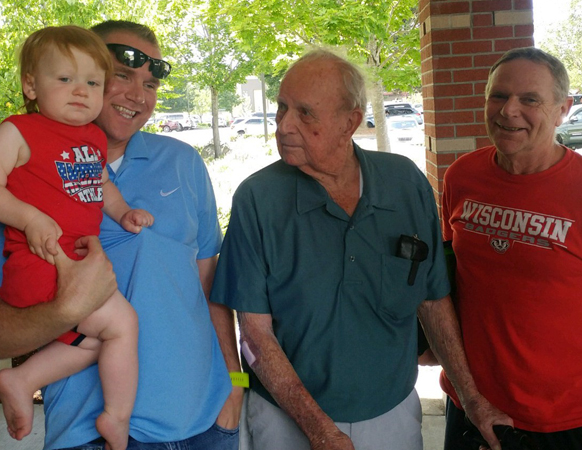

My grandfather was – and is – a big inspiration to me. We had a close relationship growing up; he is the person who taught me how to play golf, and a lot of the lessons he taught me on the golf course ended up spilling over into my everyday life. The greatest lesson he taught me is to take things in stride, and if something isn’t going well to just move on to the next step and try to do better the next time. This lesson is one that I took to heart and it ended up greatly influencing my reaction to my grandfather’s cancer diagnosis.
In July of 2017, I had just finished a workout with one of my coworkers when I got a call from my father letting me know that my grandpa had been diagnosed with muscle-invasive bladder cancer. I remember the drive home feeling like it dragged on for hundreds of miles as my thoughts ran through my head. My grandfather wasn’t young; surgery wasn’t an option due to his age and chemotherapy wasn’t going to be a fit for him. When I was finally able to speak to him, I asked him if his doctor had mentioned radiation therapy as an option – he hadn’t – and I helped him begin to look into treatment options.
While hearing that a loved one has been diagnosed with cancer is never easy, I was in a special case due to my work at the American Society for Radiation Oncology. I was surrounded by these incredible, smart people who gave me all these resources to use like patient brochures and videos, questions to ask, and doctors to talk to. I flew from Virginia to Oregon armed with a lot of knowledge, and was able to help my grandpa through the initial steps. I spoke to his radiation oncologist like he was just another member of ASTRO (which he is, funnily) and, thanks to everyone’s advice, could ask knowledgeable questions about the treatment process. I’m the youngest grandchild and I think it was good for my grandfather to see me in a different light and it made him more comfortable with the idea of radiation therapy. Initially my grandpa wasn’t going to seek treatment for his cancer, but I recalled the lessons he taught me growing up – specifically that lesson from the golf course – and I refused to accept that decision. With my experience working with radiation oncologists and all the smart people in the ASTRO office to back me up, I was able to give my grandpa the tools he needed to find a way to take the next step.
As cheesy as it sounds, my knowledge about treatment options for cancer gave me – and my grandpa – a form of power. There are so many resources to take advantage of when you or a loved one are diagnosed with cancer and my career allowed me to have those resources at my fingertips. Those resources are available to everyone though. Rely on your support systems and let people help you. Sometimes there are so many resources available that they can seem overwhelming. Just remember that your doctors are people too. Use their knowledge and ask them what they would do if they were in a similar situation or had a loved one in a similar situation. Ask lots of questions, and try to be supportive in whatever way you can if you find yourself in a caregiver role. Even though it can be scary, just remember – a lot of people have had cancer, but a lot have been treated and a lot have been cured. Let your loved one know that regardless of whether their cancer is beatable, you’ll be there for them.
For my grandfather, treatment was never about finding a cure. We were mostly focused on quality of life. His treatment went well in the beginning, but he had to stop in the middle due to some side effects, which he was made aware of beforehand. After a short break, he was able to resume his treatment and his scope following the treatment showed that there were no signs of cancer in the muscle. While this doesn’t mean that he’s cured, the doctors are hopeful for the future, and so are we.






